World Geography And Politics Daily News | 10 Jul 2023

Views (147)
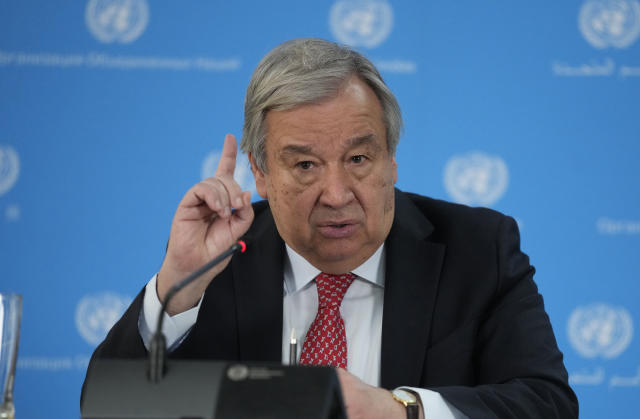
BRICS summit to be 'physical' despite Putin warrant: S.Africa
South African President Cyril Ramaphosa said Sunday that next month's BRICS summit, which Vladimir Putin has been invited to attend, will be held in-person despite an arrest warrant on the Russian leader."The BRICS summit is going ahead and we are finalising our discussions on the format," Ramaphosa told South African journalists on the sidelines of a conference by the ruling ANC, adding it will be a "physical" meeting.
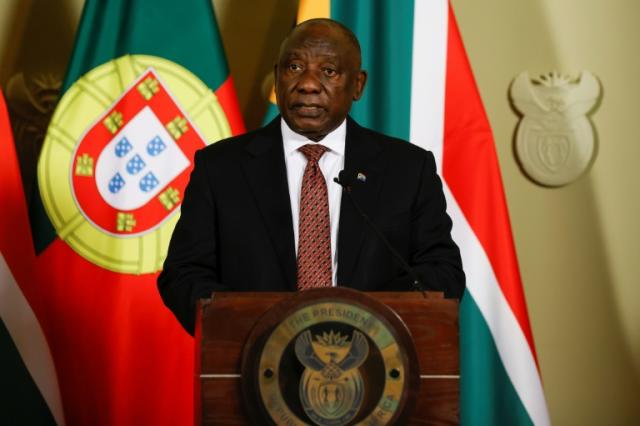
South African President Cyril Ramaphosa said Sunday that next month's BRICS summit, which Vladimir Putin has been invited to attend, will be held in-person despite an arrest warrant on the Russian leader.
South Africa is the current chair of the BRICS, a grouping of heavyweights that also includes Brazil, Russia, India and China to challenge the dominant US and European-led global governance structures.
"The BRICS summit is going ahead and we are finalising our discussions on the format," Ramaphosa told South African journalists on the sidelines of a conference by the ruling ANC, adding it will be a "physical" meeting.
He did not say if Putin -- who is wanted by the International Criminal Court (ICC) over accusations that Russia unlawfully deported Ukrainian children -- would attend or not.
"We are going to have a physical BRICS summit, all of us are committed to having a summit where we will be able to eyeball each other," he said in response to a question during a briefing broadcast live on local television networks.
"We have not held a physical summit for... almost three years. It's not going to be virtual," he stressed.
As a member of the ICC, South Africa would be expected to arrest Putin if he sets foot in the country.
There had been speculation in the local media that Pretoria was considering moving the talks to China, which is not signatory to the Rome Statute, to avoid being put in the position of having to arrest Putin.
The arrest warrant is a diplomatic dilemma for Pretoria, which has been close to the Kremlin since the anti-apartheid struggle years.
South Africa has not condemned Russia's invasion of Ukraine, saying it is impartial and prefers dialogue, which it is pushing for.
- Neutral position -
Defending South Africa's neutral position, Ramaphosa said Pretoria would not be deterred in its campaign to push for negotiation where conflicts arise.
"It's an important role that we can advance," he said. "With the geopolitical situation as fluid as it is now, we believe that it's important that a country like South Africa should be able to play its long-stated role."
"This we have learnt from the great Nelson Mandela because that was his approach also to international relations, he was able to talk to all parties whether they were in conflict or not," said Ramaphosa.
Last month, Ramaphosa led a seven-country African peace delegation including representatives from the Republic of Congo, Egypt, Senegal and Uganda, in a historic attempt to broker peace between Kyiv and Moscow.
The African leaders' mission brought the voice of a continent that has badly suffered from repercussions of the Ukraine conflict, particularly with rising grain prices.
It put forward a 10-point proposal, including de-escalation, the recognition of countries' sovereignty, unimpeded grain exports through the Black Sea and sending prisoners of war and children back to their countries of origin.
South Africa is set to host the 15th BRICS summit at the Sandton Convention Centre in the financial hub Johannesburg from August 22 to 24.
Several countries have expressed interest to join the BRICS, according to the South African foreign ministry.
sn/rox
Brexit tariffs threaten Vauxhall’s mega factory in Luton
New Brexit tariffs on electric car parts threaten the future of Vauxhall’s huge factory in Luton, the plant’s director has warned.
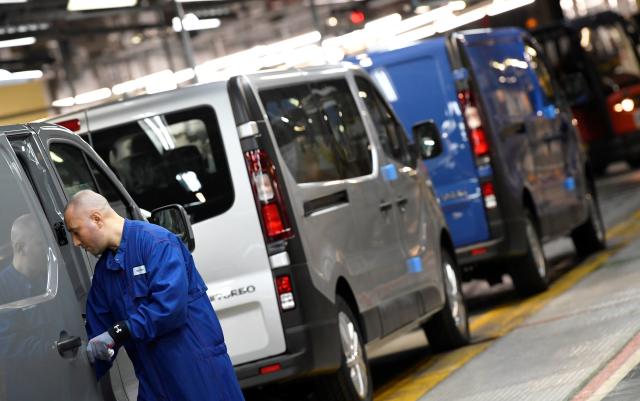
New Brexit tariffs on electric car parts threaten the future of Vauxhall’s huge factory in Luton, the plant’s director has warned.
Under new “rules of origin” laws that come into force from January, 45pc of the value of an electric car must originate from either the UK or the EU. This is due to rise to 65pc in 2027.
But car makers have urged the Government to roll out a moratorium on the new laws to allow them to catch up with the changes.
Mr Noble said: “If we have a 10pc tariff that makes our vans more expensive going into Europe. If we are not cost competitive then we jeopardise our long term future.”
The factory boss told the BBC the firm was “working with the UK government to try and relax those rules”.
The Luton factory, which opened in 1905, employs around 1,500 people and specialises in producing vans, around 70pc of which are exported to mainland Europe.
Mr Noble said Stellantis viewed the site as “integral” to Vauxhall, adding: “There are massive challenges, but I am confident we can overcome these challenges. To be sustainable in any industry you have to be cost competitive.”
It marks the latest warning over the impact of looming tariffs on Britain’s nascent electric vehicle industry.
Mike Hawes, chief executive of industry body SMMT, said: “The Government has set the industry tough targets and we are committed to meeting them.
“But we are in the middle of the most fiercely competitive investment landscape of a generation and need a UK response, urgently, using every policy, every fiscal and regulatory lever, to make Britain the most attractive place to invest.”
The SMMT has also called for other reforms, including a VAT cut on public chargers for electric cars and improved science education.
A government spokesman said: “The Business and Trade Secretary has raised concerns about the 2024 Rules of Origin changes for Electric Vehicles and their batteries with the EU and is determined to find a joint UK-EU solution that ensures the UK remains one of the best locations in the world for automotive manufacturing.”
Russians aged 30 to 50 start showing doubts about Putin's policy — expert
Russians aged 30 to 50 are beginning to demonstrate doubts in the policies of Russian dictator Vladimir Putin, Vadim Denysenko, the director of the Ukrainian Institute of the Future, said in an interview with Radio NV on July 6.
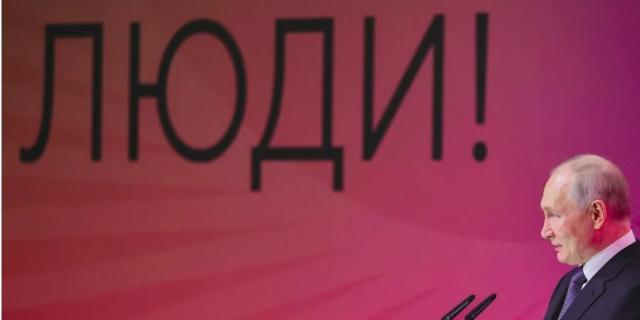
"Look at the recent sociological surveys,” he said.
“However we may perceive them, they clearly showed that the middle-aged generation, which refers to the 30-50 age group, has begun to doubt Putin in many respects.”
He noted that previously, it was primarily the younger generation aged between 18 and 28 who had doubts about Putin.
"Now everyone is starting to seriously and, I would say, even fearfully look at their future,” Denysenko noted.
"Because they have ahead of them, roughly speaking, 20-30 years, if not of active life, then certainly just life, and they understand that things are not going in the right direction.”
After the mutiny of the Wagner mercenary company, led by Wagner head Yevgeny Prigozhin, Putin’s former advisor who now heads the so-called "Institute of Political Studies," Sergei Markov, claimed that the approval of the Russian dictator supposedly rose from 80 to 90%.
Meanwhile, a new survey conducted by a group of Russian sociologists from the company Russian Field showed that 35% of Russian citizens would like to repeal Putin's decision on a full-scale invasion of Ukraine if they could go back in time.
In the first months of the full-scale war against Ukraine, 26-28% of respondents opposed the decision to wage war, and in December of last year, it was 33%.
The share of those who would still start a war despite being able to go back in time has fallen below half for the first time and stands at 49%.
According to the survey, the most anti-war sentiments prevail among young people aged 18 to 24, while support for the war is most popular among male respondents aged 45 and older.
At the same time, according to the survey, the level of support for Putin's possible decision to launch a new offensive on Kyiv is at its highest among Russians since July 2022. It is supported by 64% of respondents. Among them, almost three-quarters (74%) consider the outcome of the full-scale war against Ukraine as "successful."
The survey was conducted by phone from June 16 to 19 and involved 1,604 people.
Burgum calls China’s Xi a ‘brutal dictator’
North Dakota Gov. Doug Burgum (R), a 2024 presidential candidate, called Chinese President Xi Jinping “a brutal dictator” in an interview that aired Sunday. “Absolutely,” Burgum told NBC’s Chuck Todd on “Meet the Press,” when asked whether Xi was a dictator. President Joe Biden recently called Xi a dictator and faced fierce pushback from the Chinese government,…
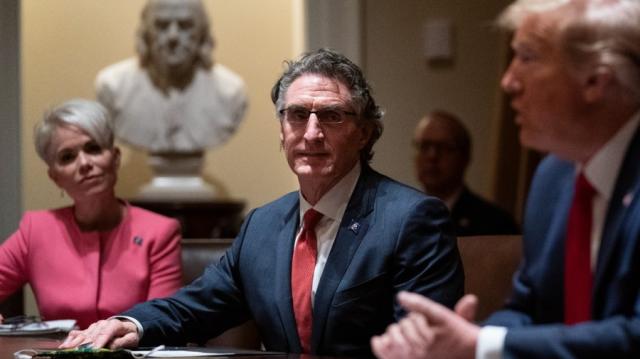
North Dakota Gov. Doug Burgum (R), a 2024 presidential candidate, called Chinese President Xi Jinping “a brutal dictator” in an interview that aired Sunday.
“Absolutely,” Burgum told NBC’s Chuck Todd on “Meet the Press,” when asked whether Xi was a dictator.
“Well, I’d call him a brutal dictator. I mean look at the rights record that they have,” Burgum said about China, when asked about the blowback Biden faced and how he would have handled the situation.
South Korea's Yoon pushes for strong resolve against North's nuclear ambitions at NATO summit
South Korea’s president says it’s time to clearly demonstrate strong international resolve to deter North Korea’s nuclear ambitions, and plans to discuss how to cope with the North’s expanding weapons arsenal with NATO leaders this week. Yoon Suk Yeol will attend the annual NATO summit being held this year in Vilnius, Lithuania, on Tuesday and Wednesday as part of a two-nation trip that includes a stop in Poland. “Now is the time to clearly demonstrate that the international community’s determin
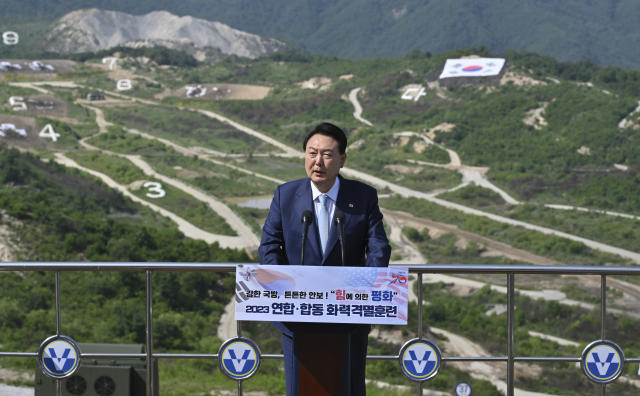
SEOUL, South Korea (AP) — South Korea’s president says it’s time to clearly demonstrate strong international resolve to deter North Korea’s nuclear ambitions, and plans to discuss how to cope with the North’s expanding weapons arsenal with NATO leaders this week.
Yoon Suk Yeol will attend the annual NATO summit being held this year in Vilnius, Lithuania, on Tuesday and Wednesday as part of a two-nation trip that includes a stop in Poland.
“Now is the time to clearly demonstrate that the international community’s determination to deter North Korea’s nuclear weapons program is stronger than North Korea’s desire to develop nuclear weapons,” he said.
It’s the second consecutive year that Yoon will take part in the summit, underscoring his push to deepen ties with the world’s biggest military alliance. South Korea faces a mix of security challenges, including North Korea’s nuclear program and the U.S.-China strategic rivalry. Last year, he became the first South Korean leader to attend a NATO summit when he took part in Spain.
In written responses to questions from The Associated Press ahead of his departure, Yoon said South Korea will stress at the NATO meeting the importance of international cooperation against “North Korea's illegal acts." He also said a new NATO-South Korean document will take effect at the summit to institutionalize cooperation in 11 areas, including non-proliferation and cybersecurity.
North Korea's headlong pursuit of reliable nuclear weapons has taken on a new sense of urgency after it test flew more than 100 missiles and openly threatened to use nuclear weapons in potential conflicts with South Korea and the United States since the start of last year.
Whether North Korea possesses functioning nuclear missiles is still a source of debate. But according to a South Korean government estimate in 2018, North Korea already had up to 60 nuclear warheads. Experts say North Korea is able to add six to 18 new warheads to its arsenal every year.
In response to North Korea’s torrid pace of missile tests, Yoon, a conservative who took office in May 2022, took steps to beef up his country’s own missile capability and expand military drills with the United States. Yoon and U.S. President Joe Biden in April announced plans to reinforce their countries’ deterrence capabilities, such as the periodic docking of a U.S. nuclear-armed submarine in South Korea and the establishment of a new bilateral nuclear consultative group, whose inaugural meeting is slated for next week in Seoul.
Yoon's discussion of North Korea with NATO leaders could trigger a backlash from North Korea, which has already called increasing cooperation between NATO and U.S. allies in Asia a process to create an “Asian version of NATO" that it said will raise regional animosities.
North Korea argues its weapons testing spree was meant to issue a warning over the expanded South Korean-U.S. military drills that it views as invasion rehearsals. Yoon says he wants to opt for peace through strength, though he remains open to dialogue with North Korea.
“Peace is never as certain and reliable as when it is backed by powerful force and deterrence,” Yoon added. “Strong international sanctions against North Korea have the effect of preventing the advancement of its nuclear and missile capabilities.”
In Vilnius, Yoon said that there will be “several opportunities” for him to speak with Biden over a range of topics, such as the strengthening of the U.S. security commitment and the expansion of trilateral security cooperation between Seoul, Washington and Tokyo.
Yoon said he and Japanese Prime Minister Fumio Kishida also plan to hold a bilateral meeting there. He said he and Kishida will be able to discuss the advancement of bilateral relations but also ways to expand mutual solidarity and international cooperation.
Relations between South Korea and Japan have improved significantly in recent months, with Yoon taking a major step toward resolving a thorny dispute over Japan’s colonial-era mobilization of forced Korean laborers. The Yoon-Kishida meeting in Vilnius is expected to touch upon Japan’s contentious plans to release treated wastewater from the crippled Fukushima nuclear power plant, which was recently approved by the U.N. nuclear watchdog but is still opposed by many in neighboring countries.
During the two-day summit in Vilnius, NATO leaders are expected to offer more help in modernizing Ukraine’s armed forces as the Russian invasion of the country continues with no end in sight. They are also expected to create a new high-level forum for consultations and reaffirm that Ukraine will join their alliance one day.
Yoon said South Korea has provided humanitarian and financial support to Ukraine in a variety of forms and that supplies of de-mining equipment, ambulances and other materials “are in the works” following a recent request from Ukraine. He said South Korea has also already provided support to repair the damaged Kakhovka Dam in Ukraine.
South Korea, a growing arms exporter, has avoided directly providing arms to Ukraine in line with its long-standing policy of not supplying weapons to countries actively engaged in conflict. Leaked U.S. intelligence documents posted online earlier this year indicated that South Korea’s National Security Council “grappled” with the U.S. in early March over an American request to provide artillery ammunition to Ukraine.
“The Korean government will continue to fulfill its necessary role in tandem with the international community in order to safeguard the freedom of Ukraine,” Yoon said. “On top of this, we will work out multipronged support measures needed for the prompt post-war restoration of peace in Ukraine and its reconstruction.”
Yoon is invited to the NATO summit along with the leaders of Japan, Australia and New Zealand, a sign of strengthening ties between NATO and nations in the Asia-Pacific region. The four countries were invited to last year’s summit as well.
“Just as incidents in Europe can have a substantial and consequential impact on the Indo-Pacific region, Indo-Pacific events can have immense ramifications for countries in Europe,” Yoon said. “In particular, the war in Ukraine has reminded us all that a security crisis in one particular region can have a global impact.”
UN chief says Sudan is on the brink of a 'full-scale civil war' after nearly 3 months of fighting
U.N. Secretary-General Antonio Guterres said Sudan is on the brink of a “full-scale civil war” as fierce clashes between rival generals continued unabated Sunday in the capital of Khartoum. Guterres warned late Saturday that the war between the Sudanese military and a powerful paramilitary force is likely to destabilize the entire region, according to Farhan Haq, deputy spokesperson for the U.N. chief.
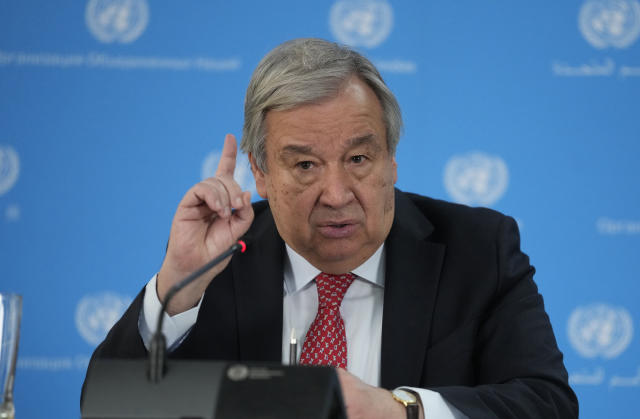
CAIRO (AP) — U.N. Secretary-General Antonio Guterres said Sudan is on the brink of a “full-scale civil war” as fierce clashes between rival generals continued unabated Sunday in the capital of Khartoum.
Guterres warned late Saturday that the war between the Sudanese military and a powerful paramilitary force is likely to destabilize the entire region, according to Farhan Haq, deputy spokesperson for the U.N. chief.
Sudan descended into chaos after months of tension between military chief Gen. Abdel-Fattah Burhan and his rival, Gen. Mohammed Hamdan Dagalo, commander of the paramilitary Rapid Support Forces, exploded into open fighting in mid-April.
Health Minister Haitham Mohammed Ibrahim said last month that the clashes have killed over 3,000 people and wounded over 6,000 others. The death tally, however, is highly likely to be much higher, he said. More than 2.9 million people have fled their homes to safer areas inside Sudan or crossed into neighboring countries, according to U.N. figures.
The war has turned the capital Khartoum and other urban areas across the country into battlefields.
Residents in Khartoum said fierce fighting was underway early Sunday south of the capital. The warring factions were using heavy weapons in battles in the Kalaka neighborhood and the military’s aircraft were seen hovering over the area, said resident Abdalla al-Fatih.
The RSF blamed the military for the attack in Omdurman. The military denied the accusation, saying in a statement Sunday that its air force didn’t carry out any airstrikes in the city Saturday.
The secretary-general also decried the large-scale violence and casualties in the western region of Darfur, which has experienced some of the worst fighting in the ongoing conflict, Haq said in a statement.
“There is an utter disregard for humanitarian and human rights law that is dangerous and disturbing,” Guterres said.
Entire towns and villages in West Darfur province were overrun by the RSF and their allied militias, forcing tens of thousands of residents to flee to neighboring Chad. Activists have reported many residents killed, women and girls raped, and properties looted and burned to the ground.
There were clashes between the military and the RSF elsewhere in Sudan on Sunday, including the province of North Kordofan, South Kordofan and Blue Nile.
Egypt, meanwhile, said it will host a meeting on Thursday for Sudan’s neighboring countries. The gathering aims at establishing “effective mechanisms” to help find a peaceful settlement to the conflict in coordination with other international and regional efforts, Ahmed Fahmy, spokesman for Egypt’s presidency, said in a statement.
Fahmy provided no further details on the gathering.
0 Likes
